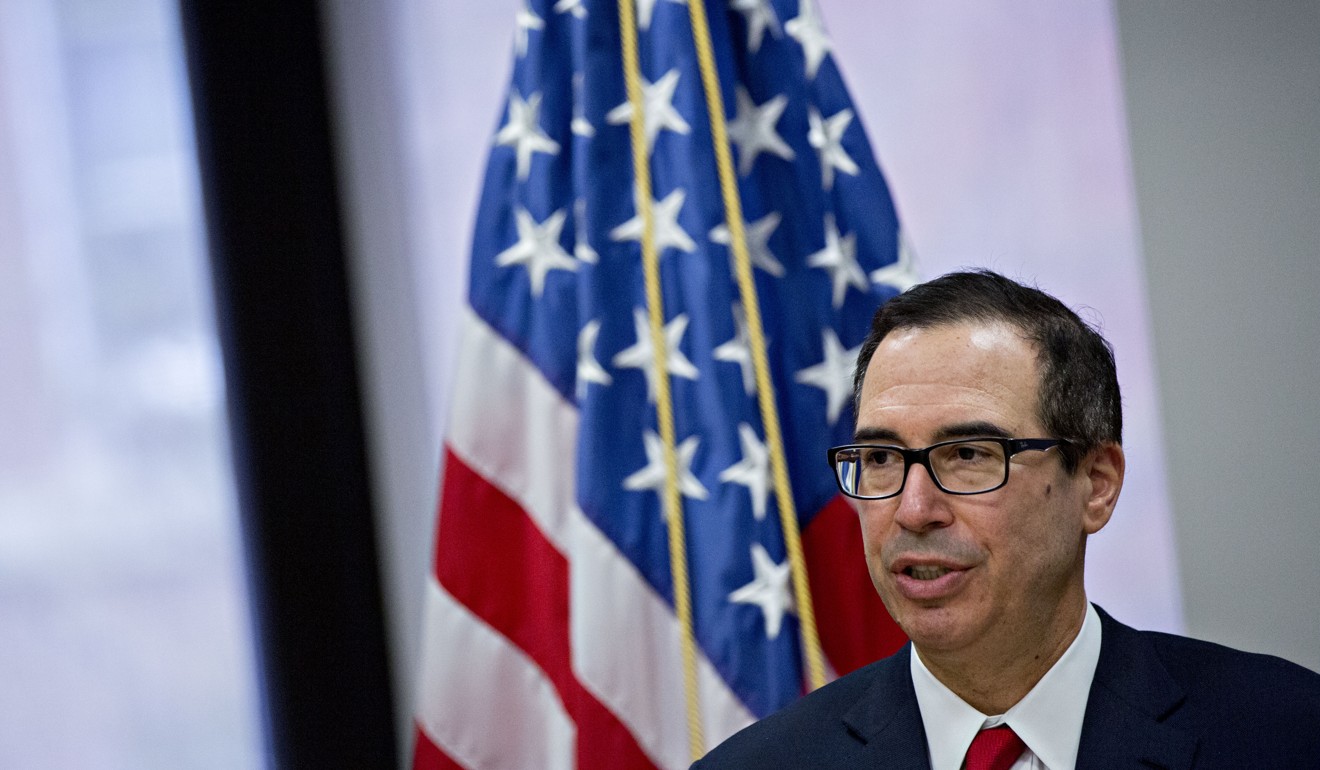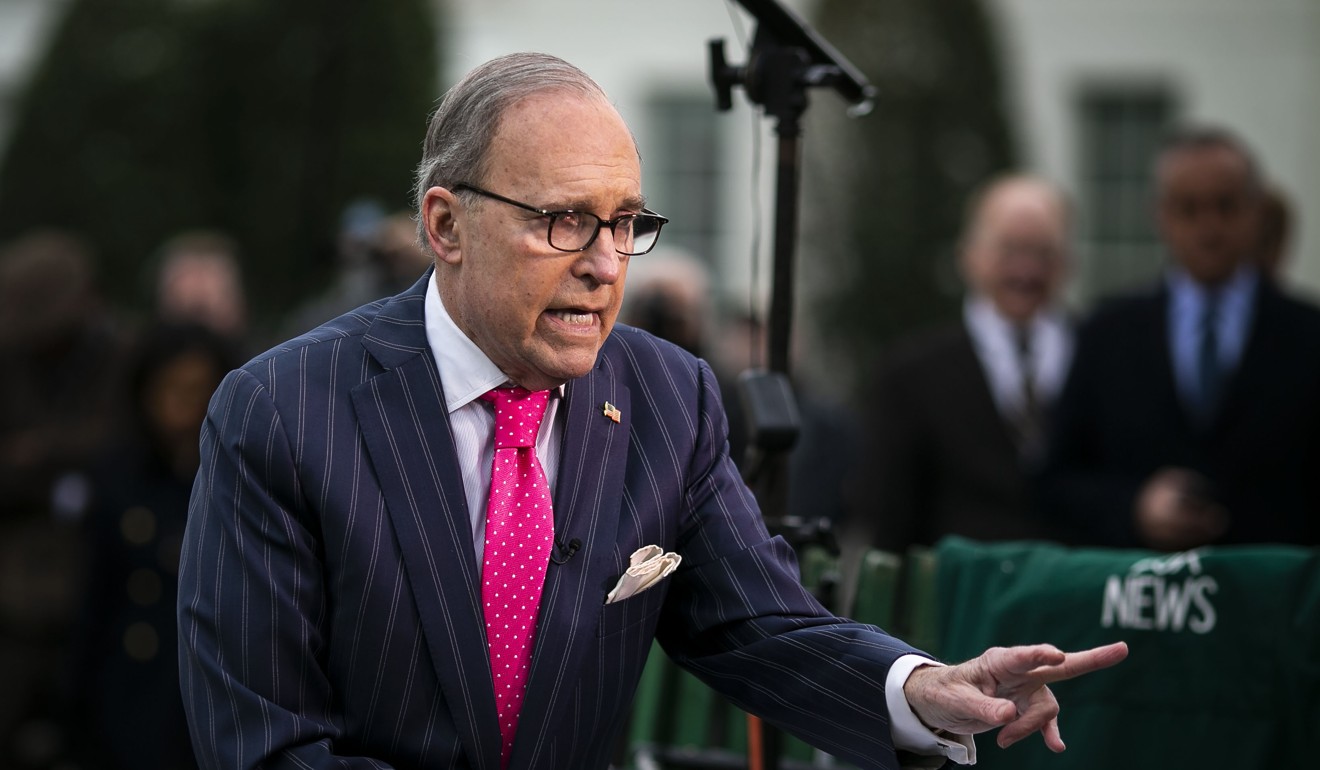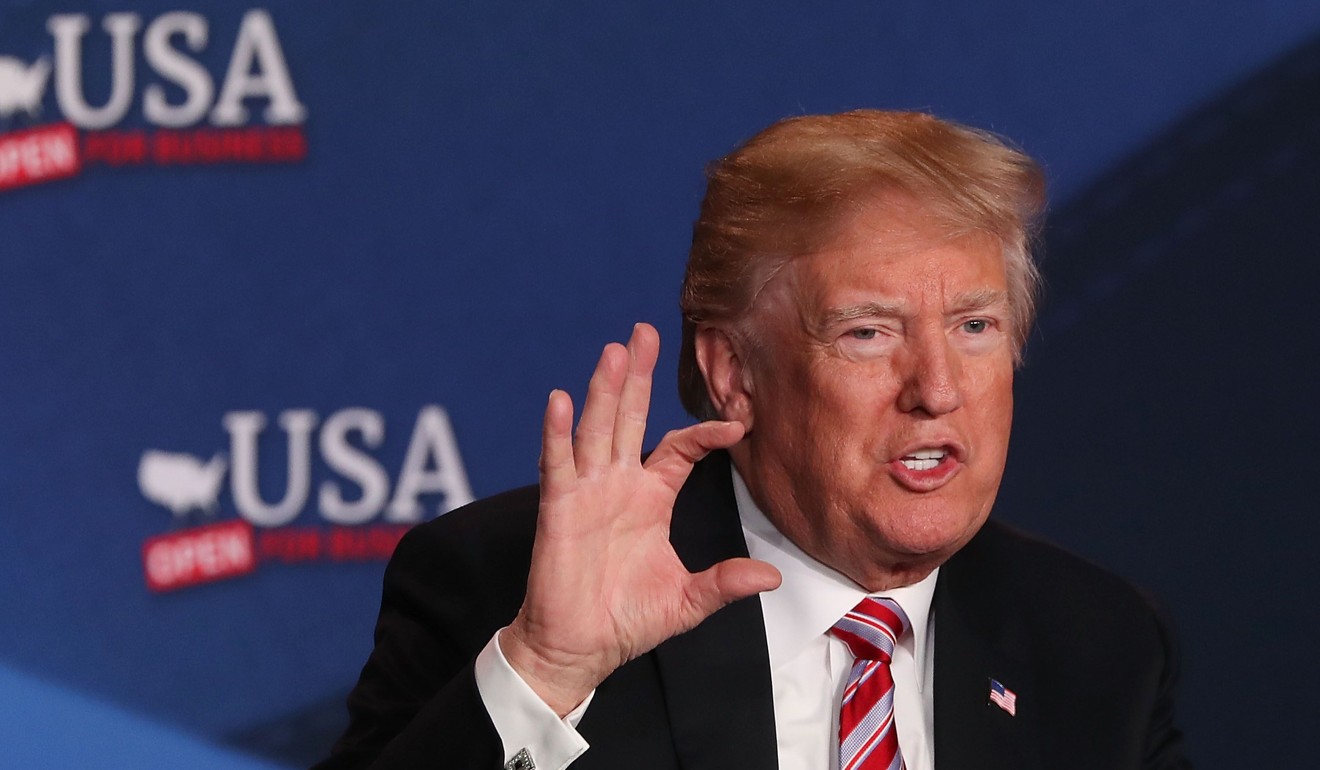
Li Keqiang says China ‘open to negotiating with US’ ahead of trade talks in Beijing
No winner in trade war, says Premier on eve of US’s visit – but analysts expect long process, with auto tariffs and ‘Made in China 2025’ among areas to resolve
China is open to negotiating with the United States to resolve trade tensions and the countries should manage their conflicts through dialogue, Premier Li Keqiang has been quoted as saying by state media.
Li made the remarks late on Thursday at a meeting with US Secretary of Transportation Elaine Chao, state broadcaster China Central Television (CCTV) said.
Steven Mnuchin, the US Treasury Secretary, is due to lead a delegation to China next week for talks intended to ease trade tensions.
Few analysts expect the talks to defuse a smouldering trade conflict with China. The likeliest outcome is more modest: a delay in the series of damaging import tariffs the two nations have threatened to impose on each other’s goods.
President Donald Trump has threatened a new round of tariffs on $100 billion worth of Chinese products that could target mobile phones, computers and other consumer goods.

China retaliated against an initial round of US tariffs on $50 billion worth of Chinese exports.
“There is no winner in trade conflict, which will affect not only the recovery of the world economy but also the global industrial chain,” Li said in comments reported by the official Xinhua news agency.
“It is also what the international community expects from our two countries,” he said.
Larry Kudlow, Trump’s top economic adviser, who will join Mnuchin’s delegation in Beijing, said on Thursday he hoped the talks with China would yield progress but resolving US complaints would be “a long process”.
Trump said earlier this week the US had a “very good chance” of striking a deal with China over trade.
Xinhua cited Li as saying he hoped the two countries would be able to “manage and control” their differences.
Trump has criticised China for raising trade barriers against US companies, including high import tariffs in sectors such as automotive.
Li added that China would “unswervingly open further to the outside world”, reiterating President Xi Jinping’s assurances about the country opening more widely to trade.
“China also stands ready to promote cooperation with the United States in transportation, such as autonomous driving,” Li said.

China recently announced plans to remove caps on foreign ownership of domestic auto ventures and to cut import duties.
The underlying frictions that have flared between the world’s two largest economies will take much longer to resolve, US government officials and China experts say.
At stake is more than the American manufacturing jobs Trump has vowed to protect. Rules that could determine which countries and companies will dominate the tech, transportation and pharmaceutical industries for years to come are at issue, as is the global economy. Any prolonged trade war would be expected to depress growth.
For now, the two sides seem far apart. Kudlow said it would take time to persuade China to conform to fundamental trade rules so that US companies could compete without being forced to surrender their technological know-how as a price of doing business in the country, as Beijing now requires.
“This programme will hopefully be negotiated out,” Kudlow told CNBC on Thursday. “If it’s not, then President Trump will take action.”
Trade experts see in the exchange of rhetoric a desire by both the US and China to avoid the damage that would result from the tariffs.
Elizabeth Economy, director for Asia studies at the Council on Foreign Relations, said the most realistic outcome from the talks was that China would fully honour a tentative plan it made with Trump a year ago.
That plan emerged from a meeting Trump held at his Florida resort with Xi. It included expanded US beef exports, rules for importing cooked Chinese poultry, access to liquid natural gas from the US and guidelines for providing financial services, among other elements.
“The outcome of [next week’s] negotiation should be understood as only the first in an escalating set of moves to force real market opening in China,” Economy said.
She noted that Trump had pushed what she called a “transactional” approach to China trade policy in which he seeks “a series of short-term wins that may or may not yield a long-term gain”.
Another potential scenario concerns a dispute over auto and auto parts. Beijing could offer to cut its 25 per cent tariff on auto imports and make it easier for US carmakers to do business in China. In a recent speech, Xi pledged to do both.

China could also offer to limit its steel exports – another source of tension – or announce purchases of US natural gas or other products, analysts say.
In return, the US might have to drop some of its threatened tariffs.
Yet such a deal would leave unaddressed one of the Trump administration’s loudest complaints about China: that its policies force companies in hi-tech industries to share their innovations to gain access to China’s market.
The administration has focused on China’s “Made in China 2025” policy, which seeks to bolster Chinese companies in such industries as semiconductors, artificial intelligence, pharmaceuticals and electric vehicles.
The plan mostly involves subsidising Chinese firms, but it also requires foreign companies to provide key details about their technology to Chinese partners.
Derek Scissors, a China economist at the American Enterprise Institute, said persuading China to amend its Made in China policies would be a brutal battle.
“The Chinese are not going to give up their core industrial policy without a fight,” Scissors said. “It’s a multiyear process. You’re not going to get them to change their mind without the tariffs going into effect [first].”
It was too early in the dispute for any major breakthroughs, Scissors added, with none of the threatened US tariffs against Beijing having taken effect.
“They’re not going to give up anything important now; [the US] hasn’t done anything,” Scissors said.
Li-Gang Liu, China economist for Citigroup, said Beijing had agreed to the talks “with an aim to avert a trade war”.
But Liu thought China would insist on having its “own industrial policy” that enables it to move deeper into hi-tech sectors in which the US and other nations enjoyed an edge.
By competing to dominate a future of robots, electric cars, computing and other hi-tech sectors, the US and China appear to be on a collision course – which led the administration to announce tariffs in the first place and China to retaliate.
David Dollar, a senior fellow at the Brookings Institution, said the Trump administration should focus on specific parts of the Made in China 2025 plan that it finds objectionable.
Some elements, such as a requirement that automotive manufacturers in China make more electric vehicles, are not significantly different from some US policies.
“That’s not something that you would nail down in a two-day trip,” Dollar said.
Reuters, Associated Press


